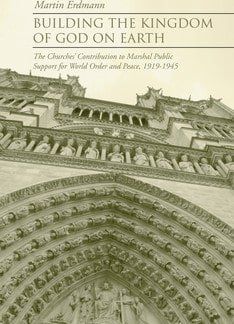Subtitled The churches’ contribution to marshal public support for world order and peace, 1919-1945,this book seems to be a slightly weird combination of conspiracy theory, secular postmillennialism and the rather unsurprising conclusion that mainstream Protestant churches pursued liberal theology during the period in question.
The research has been painstaking and centres around the role of John Foster Dulles in both ecumenical and international affairs, from the end of the First World War until sometime after the conclusion of the Second World War.
To understand this book, an appreciation of American attitudes to the Second World War and the isolationist tendency of many conservative American politicians would be helpful.
The book’s essential idea is that the quest for peace, non-intervention and a liberal vision of building the kingdom of God on earth shaped the policy of the US Federal Council of Churches.
This was further reflected in Dulles’ ‘internationalist’ view of foreign policy. We end up with a liberal, secular postmillennialism contributed to by the churches. We see this played out in the roles of international organisations, including, of course, the UN, but also foreshadowing the EU with its vision of European integration.
The conspiracy stuff is all there: the Round Table Group, the Council on Foreign Relations and the Royal Institute of International Affairs. Alongside them, of course, are the bankers. All of this, we’re told, was designed to promote ‘the new world order’, and was overlaid with a rose-tinted spectacles view of American isolationism.
The Federal Council of Churches pursued a liberal agenda that integrated closely with a sort of liberal and internationalist political agenda. This is observably still true (in both the US and the UK), and I don’t personally agree with the agenda any more than most conservative evangelicals. But it’s hardly startling.
In addition, conspiracy theories, centring on the Illuminati or the Bilderberg Group, are rarely enlightening to anybody outside their narrow circle of proponents. Dr Brian Stanley, whom I was surprised to see commending the volume, claimed it ‘will be of equal value to historians of international relations, American politics, and the Christian churches’. That may be true, but personally I see the value as minimal.
In some ways, Dr Erdmann does have a story to tell. Certainly the history of Dulles’ involvement with and reaction to the pronouncements of the Federal Council of Churches and evangelical divisions over the USA’s attitude to the Second World War were enlightening. But the book is spoilt by its conspiracy theories.
Richard Turnbull
Oxford










